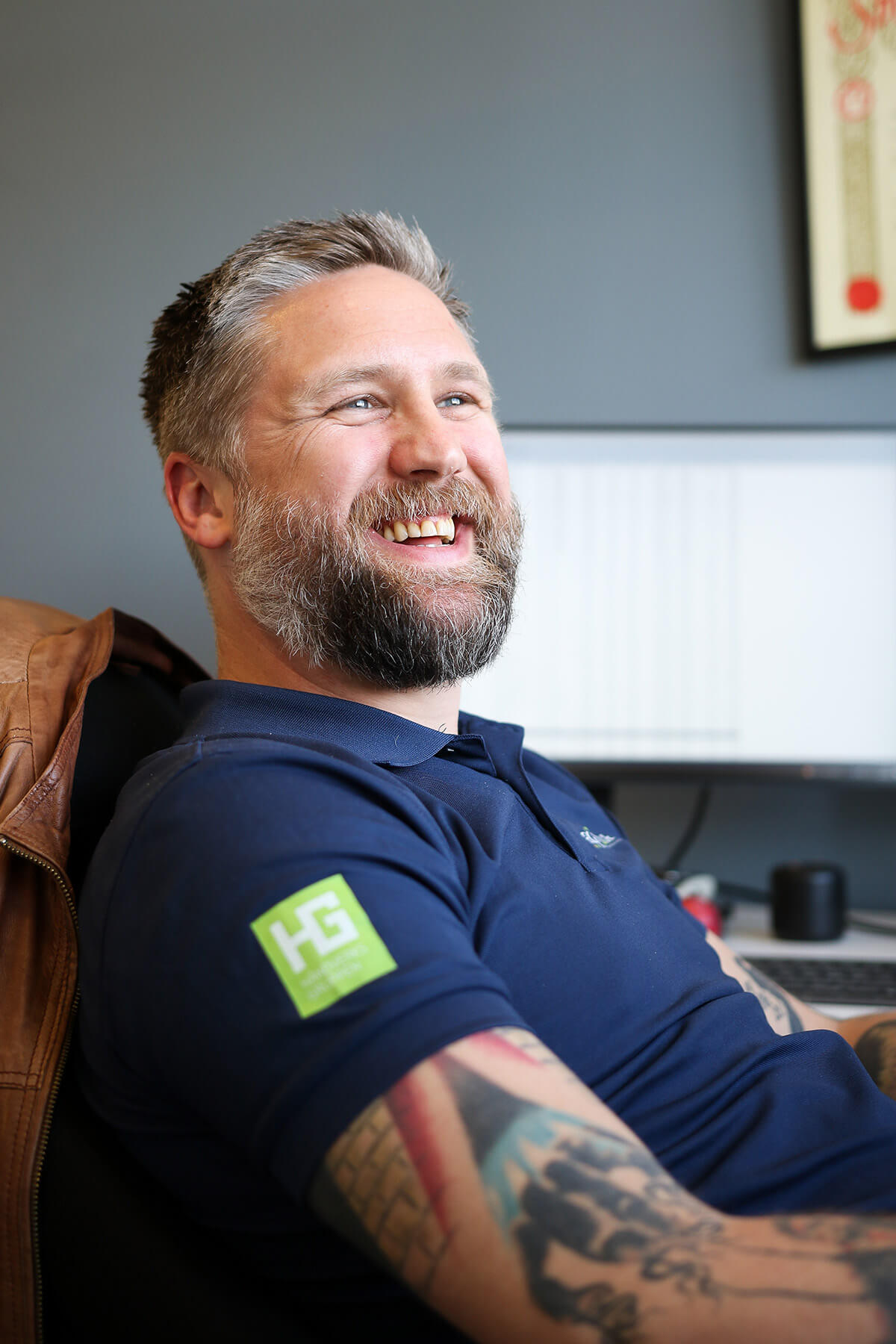HG has hired a digital employee, one who will go to work every night updating hundreds of insurance cases. This way its human colleagues don't have to fry their brains on small, repetitive tasks. And rather excel in their career.
For several years – handling an incoming wave of constant updates on loads of insurance cases every week – ultimately gave Knut some gray hairs. The frustration of the repetitive, and often quite boring click and drag-movements affected the project manager in a bad way.
– It could affect my whole workday, and even the relationships with both clients and colleagues, says Knut V. Gjermstad.
Although he is laughing a bit.
Why?
We will tell you later.
Knut is a one of 150 project managers at Håndverksgruppen, and he oversees approximately 40 insurance cases per week at the painter company Regnbuen in Oslo. For years he manually had to update all projects in a cloud system.
The thing is, before Knut can send any of his painters out to color the world, he needs to know if the timing is right. If damage control has done their jobs first for instance.
If, after a water damage, walls or roofs are dry. If, after a collapse of some sort, the wood is built back together – so all is ready for surface work. But these pre-painter-taks often get moved around. Things happen. People cancel, get sick, they discover “pink elephants“, meaning unforeseen problems that need solving – all before the surface craftspeople can start to get their hands dirty.
Why fry your brain handling repetitive and frustrating tasks?
All of these changes need updates. Digital updates. Clicks and drags that are small, boring, repetitive and sometimes frustrating assignments. But still quite important. Because every person involved in an insurance case needs to know what to do when. If not, the work gets bigger, longer and more expensive. The clients would very much like to know when they can expect every step of the rescue process of their home to be done. If not they are not able to move back home.
And also, the insurance companies require that all project managers at Håndverksgruppen as accurately and as often as possible update their time schedule for their clients.
This. Is. Stressful. Why? It needs constant supervision. So, the time spent to do these updates could instead be done by a robot. The time saved could be given back to the human project manager to do other, more important work.
– Like what?
– Like making better connections with our damage control partners, in order to get more projects on our hands, or do follow up on the painters who might have missed a few square meters of wall on the final invoice, and in that way get more revenue, says Knut.
“I will still have to work of course, but I can do my job smarter and more effectively”

Facts:
- Four full-time positions every year, just spent on shifting dates in software.
- Repetitive and stressful tasks drain staff morale.
- A robot has taken over, without taking anyone's job.
- Human work shifted towards creating more value.
The digital employee who is crazy about “boring”
A few weeks ago Knut literally jumped in his rotating office chair. He got real excited and gave people high-fives. You see, he got to know that these tasks from now on were going to be done by a new colleague: A robotic process automation system.
This new digital employee of Håndverksgruppen has its own log-in and username. It will work every night from 02:00 till 06:00 – and in the morning have done all the clicking and dragging in order to update all projects.
It is quite cool to watch while it works. It is like a ghost has taken over a person's keyboard, the arrow glides over the screen, stuff gets moved, you can see it all in real time, only no human fingers are touching the letters or mouse. The system will work through all the cases in a speeding movement and in the end send reports to each and every project manager in Håndverksgruppen, every morning.
This will save Knut one to two hours of work per week. Said in another way: More than one whole work week per year.
– It is so cool!

